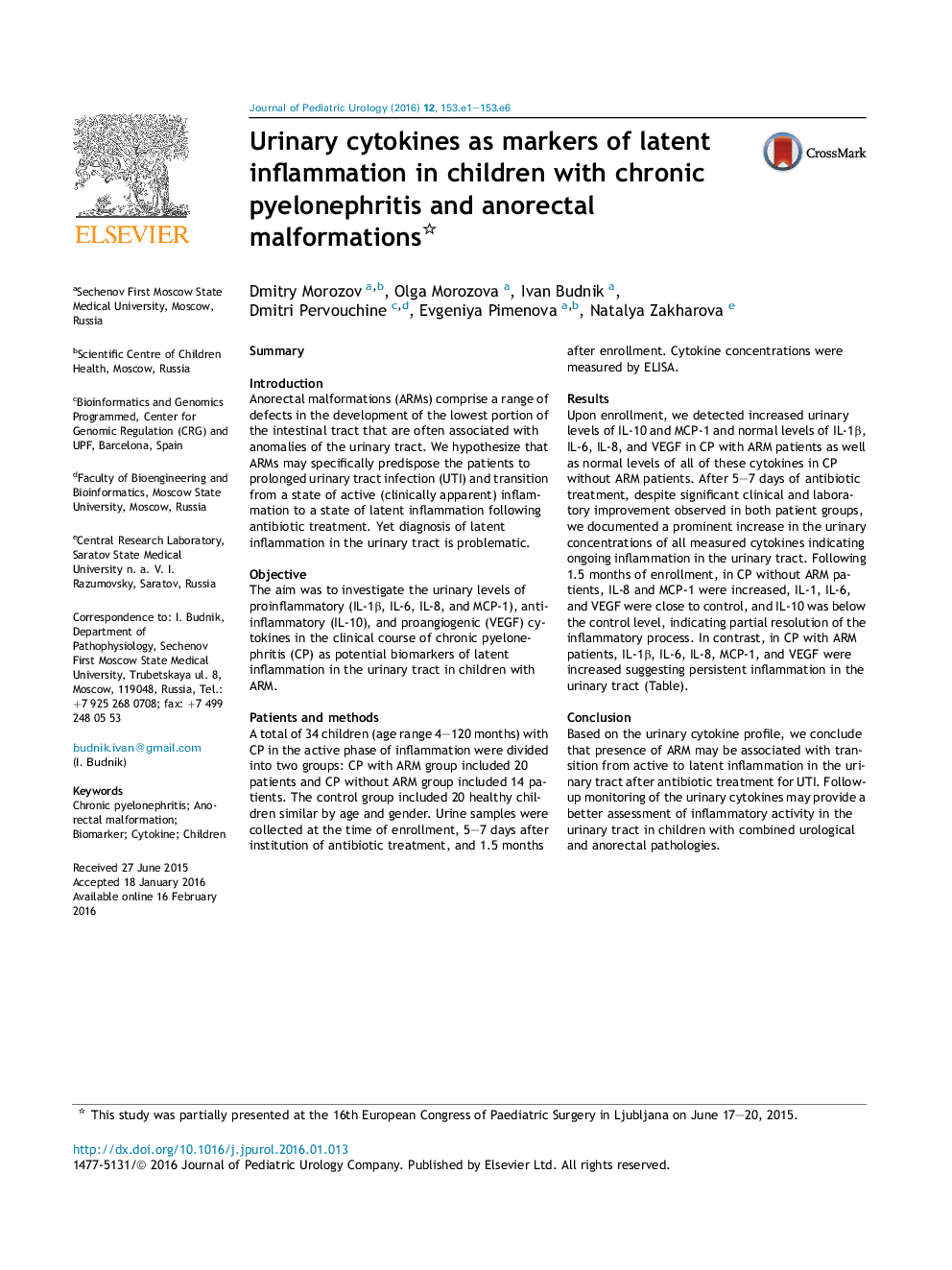| Article ID | Journal | Published Year | Pages | File Type |
|---|---|---|---|---|
| 4161888 | Journal of Pediatric Urology | 2016 | 6 Pages |
Abstract
Based on the urinary cytokine profile, we conclude that presence of ARM may be associated with transition from active to latent inflammation in the urinary tract after antibiotic treatment for UTI. Follow-up monitoring of the urinary cytokines may provide a better assessment of inflammatory activity in the urinary tract in children with combined urological and anorectal pathologies.Table. Urinary cytokine concentrations in healthy controls and chronic pyelonephritis patients 1.5 months after enrollment.CytokineControlCP with ARMCP without ARMMedian (IQR)Median (IQR)p vs. controlMedian (IQR)p vs. controlp vs. CP with ARMIL-1β3.7 (1.2-7.4)33.2 (19.4-55.9)<0.0014.0 (3.2-5.7)0.375<0.001IL-62.4 (1.5-3.5)52.5 (29.3-109.1)<0.0014.9 (4.2-7.4)0.2180.047IL-86.1 (4.9-9.5)389.7 (371.4-400.4)<0.001236.3 (197.6-326.9)0.0170.196IL-106.4 (5.5-9.7)6.9 (3.5-18.1)0.3751.7 (1.2-3.1)0.0110.007VEGF166 (142-238)733 (597-792)<0.001312 (218-384)0.2550.041MCP-1122 (107-154)425 (354-509)<0.001367 (329-392)0.0020.375Note. Concentrations are given in pg/mL. P values were calculated using the Kruskal-Wallis test followed by the post hoc Dann test and adjusted for multiple comparisons. CP = chronic pyelonephritis; ARM = anorectal malformation; IQR = interquartile range.
Related Topics
Health Sciences
Medicine and Dentistry
Perinatology, Pediatrics and Child Health
Authors
Dmitry Morozov, Olga Morozova, Ivan Budnik, Dmitri Pervouchine, Evgeniya Pimenova, Natalya Zakharova,
